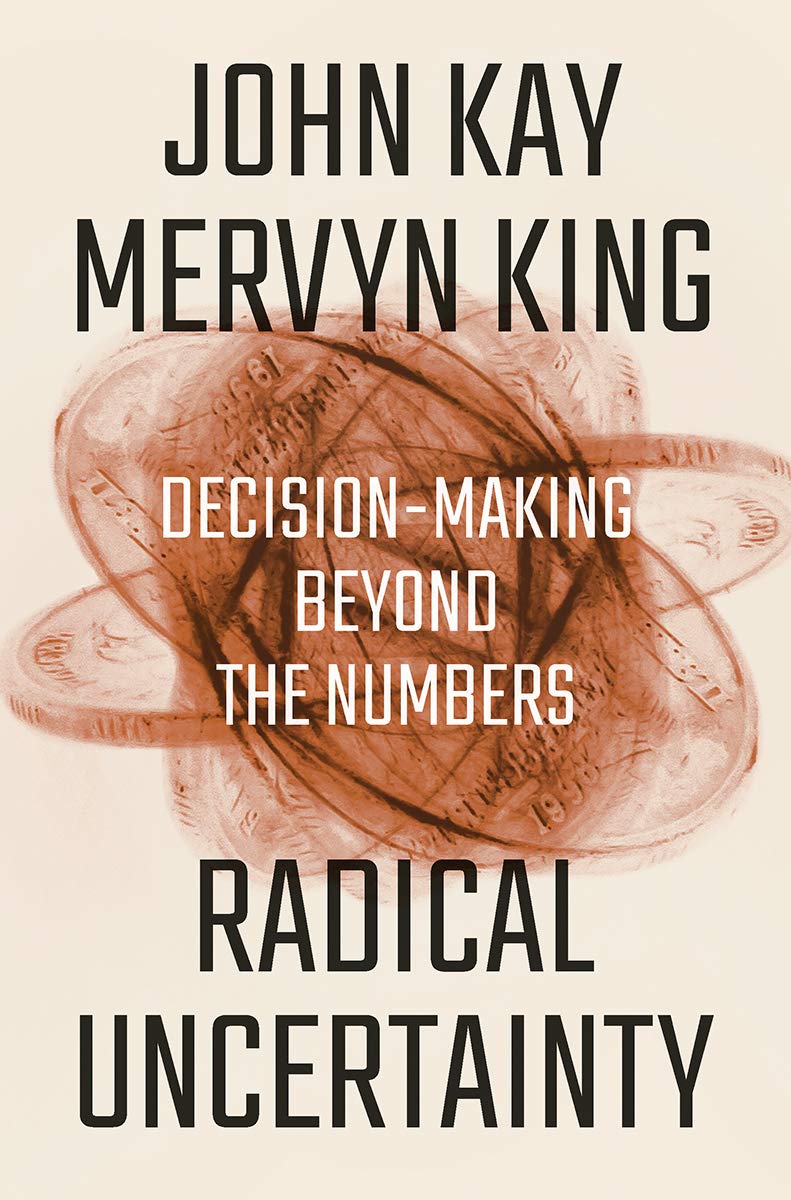Book Review - Radical Uncertainty

I think that good program managers really earn their money by managing uncertainty. A common theme that goes through a lot of my posts is that nothing ever goes to plan. Despite this, much of the training that seems to be available through professional organizations like PMI gives the impression that all there is to program management is putting a plan together and executing it. If you step away from the PMI world, I think that there is more recognition of the importance of understanding the role uncertainty plays in large programs and how programs should be managed to cope with it.
All of this means that I am quick to pick up new books that address uncertainty. Radical Uncertainty came across on my recommendations and I bought it. The authors take issue with many of the leading ideas regarding uncertainty in economics. They devote most of their time arguing against the misuse of mathematical uncertainty, topics like variance and Bayesian probability, and fight for a prominent place in economic thought for uncertainty that cannot be expressed with mathematical equations. Behavioral economics are not safe from criticism either. People may seem to be “irrational” when judged in contrived problems where decisions can be expressed mathematically. But in the real world, where it is impossible to assign probabilities to the infinite number of possible scenarios, peoples decisions can no longer be accused so easily of being irrational.
One other subject that made me happy to read was the author’s (John Kay and Mervyn King) defense of narratives. The word “narrative” seems like it has become a pejorative lately. Behavioral economics and data journalists seem to argue that narratives should be replaced by strict, numerical Vulcan logic. But Kay and King defend narratives. In their view, narratives have been used successfully by people for thousands of years to determine What is Going On in a world with radical uncertainty that cannot be explained via a probability distribution or Bayesian prior. Using a narrative to communicate thinking and decisions is not a sign of human frailty as is often implied or stated by behaviorists. It is a strategy for coping with a radical uncertain world that has been used successfully by people for millennia.
Kay and King’s opinion on the value of narratives reinforces my opinion of the positive value of putting plans and strategies to paper. When I end up at points in programs where they seem stalled or pivotal decisions have to be made, I like to work through the problem and proposed solutions in writing. Putting problems and solutions in writing helps in several ways. First, putting my own thoughts in writing helps stop me from ruminating on some aspect of the problem. Writing it down on paper lets me get it out of my head and permanently put it on paper. Second, writing helps me shape and clarify my arguments. Even when I want others to read what I have written, they rarely do - it’s in complete sentences after all, most prefer bullet points and take-aways. But when I need to make my arguments verbally, the writing homework I do by myself ahead of time makes me more prepared to debate effectively and be persuasive. Finally, putting status and thoughts in writing serves as a milepost for me to look back on later on. Sometimes I catch myself questioning some decision I’ve made - Man, that was a stupid decision, why did I do that. But I can look back at my writing and see my logic at the moment. Most of the time, it will show my decision was sound given what I knew at the time, it’s just that radical uncertainty has taken its toll.